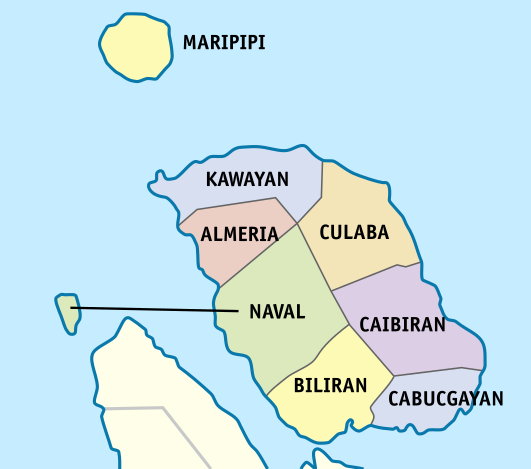|
Culaba
Culaba (IPA: Help:IPA/Tagalog, [kʊ'labɐʔ]), officially the Municipality of Culaba ( war, Bungto han Culaba; ceb, Lungsod sa Culaba; tl, Bayan ng Culaba), is a 5th class municipality of the Philippines, municipality in the Philippine Province, province of Biliran, Philippines. According to the 2020 census, it has a population of 12,972 people.The town's populace predominantly speak Waray language. Geography According to the Philippine Statistics Authority, the municipality has a land area of constituting of the total area of Biliran. Barangays Culaba is politically subdivided into 17 barangays. Climate Demographics In the 2020 census, Culaba had a population of 12,972. The population density was . Economy Education Secondary schools * Culaba National Vocational School * Bool National High School * Pinamihagan Integrated High School Elementary schools * Acaban Elementary School * Bacolod Elementary School * Binongtoan Elementary School * B ... [...More Info...] [...Related Items...] OR: [Wikipedia] [Google] [Baidu] |
Biliran
Biliran, officially the Province of Biliran ( Waray-Waray: ''Probinsya han Biliran''; ceb, Lalawigan sa Biliran; tl, Lalawigan ng Biliran), is an island province in the Philippines located in the Eastern Visayas region (Region VIII). Biliran is one of the country's smallest and newest provinces. Formerly a sub-province of Leyte, it became an independent province in 1992. Biliran lies less than a kilometer north of the island of Leyte. A bridge-causeway fixed link over Poro Island in the gateway town of Biliran connects the province to Leyte. Its capital is the municipality of Naval on the western coast of the island. History Etymology During the early Spanish era, what is now called Biliran was known as ''Isla de Panamao''. The present name, believed to be adopted sometime between the late 17th century and the early 18th century, was, according to many publications, derived from a native grass called ''borobiliran'' which once grew abundantly on the island's plains. A contend ... [...More Info...] [...Related Items...] OR: [Wikipedia] [Google] [Baidu] |
